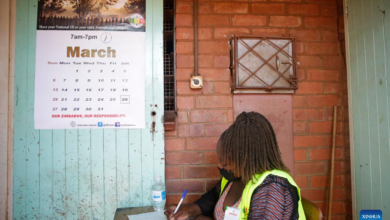Zimbabwe
Zimbabwe Signs Bill Into Law That Curtails Striking Rights For Health Workers

Zimbabwe on Tuesday signed a bill into a law that banned organized protests by healthcare workers who could now face a fine or imprisonment of up to six months, reported The Reuters.
The signing of the bill by President Emmerson Mnangagwa comes after health workers staged a fight against the government demanding better salaries last year. The bill was approved by Parliament last November and published in the government gazette on Tuesday. It bars doctors and nurses from going on strikes for more than 72 hours.
Under the new law, Zimbabwe workers’ representatives who provoke or organize protests contravening the regulation will have to face up to six months of imprisonment and a fine. Health workers who take part in any strike will also have to face disciplinary action.
The Zimbabwe Association for Doctors for Human Rights (ZADHR) said the legislation risked pushing more workers to seek employment abroad.
“This bill … (is) in fact draconian,” said ZADHR director Calvin Fambirai.
He said that Zimbabwe already had a risk of brain drain as health workers have been leaving the country for better opportunities. He warned that the number of medical workers leaving the country is likely to rise due to the new law.
Doctors and nurses have moved abroad in recent years due to poor working conditions and pay amid runaway inflation. Notably, many nurses in Zimbabwe earn less than $100 a month.
Last year in June, they held a week-long wage strike complaining that a lack in availability of basic medicines such as paracetamol and bandages in hospitals was making their job difficult.
In November, the country’s Health Services Board said that over 4,000 healthcare workers resigned from public institutions in the year to November with many thought to have emigrated.
It comes as rights groups and opposition parties have complained of an increased government clampdown on dissent with general elections due this year.






